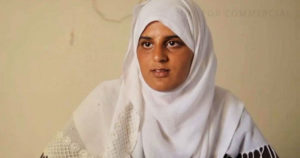In the week following the killing of George Floyd in 2020, a group of Columbia University students, flushed with ideological fervency, sent a petition to the Dean of the university’s School of International and Public Affairs (SIPA). Signed by more than 200 SIPA students and alumni, it castigated the school for its “structural racism” and called for more courses with a focus on racial justice, more black students and faculty, and more minority-owned catering services at university events. Its organisers also demanded the removal of Mitchell Silber, an adjunct professor who ran a course titled “Modern Urban Terrorism”.
To read the accusations levelled at Silber, you could be forgiven for thinking that he was a blood-curdling white supremacist who turned up to class in white robes and a pointed hood. His sins, however, were somewhat different: his course focused on Islamist terrorism, he had previously worked for the New York Police Department (NYPD) as Director of Intelligence Analysis (2005-2012), and he had co-authored a NYPD-sponsored report of jihadist radicalisation. “It is extremely and violently Islamophobic, racist, unconstitutional, and imperialist,” wrote the organisers, referring to the course, without bothering to substantiate how or why it was all of those things. “Hence, another key demand,” they went on, “is that Silber be fired, his course cancelled forever.”
I drag up this pitiful episode from the US-Derangement File because it sharply parallels a recent case that has been doing the rounds here in the UK: the demonisation of King’s College London (KCL) as a citadel of progressive infantilism that endangers the British security state. It all started on 9 January, when a journal that nobody had heard of (Fathom) published an article by a former civil servant that nobody had heard of (Anna Stanley). Within days of its publication, Douglas Murray (who everybody has heard of) was calling for the suspension of a senior KCL academic; and now the Security Minister Tom Tugendhat has ordered a review into “biased” civil service training.
There are differences between the two cases: most notably, the cancellation effort aimed at KCL is coming from the Right, whereas Silber’s antagonists were coming from the Left. But in their ideological zeal and hyperbole, KCL’s most vocal critics sound every bit as puritanical as the progressive types they loathe.
In her article, Stanley recounts a three-day course she attended last year at KCL while she was working at the Foreign Office as an open-source intelligence analyst. The course, “Issues in Countering Terrorism”, was organised by the Centre for Defence Studies and was attended by around 40 civil servants from the Foreign Office, Ministry of Justice, Ministry of Defence and Home Office.
It was “a deeply, existentially depressing experience”, she wrote. This was not because of the dark subject matter of the course, but rather because so much of its content was informed by “typical post-modern identity politics”. Indeed, she charged, the course was not so much an educational training programme as a form of anti-government “indoctrination” that downplayed the threat of Islamist extremism, which, she rightly pointed out, remains the most serious security threat in the UK.
According to Stanley, the course went downhill as soon as it started. It began with definitions: “What is Terrorism? Without anyone providing an opposing standpoint, we were taught the adage, ‘One man’s freedom fighter is another man’s terrorist’.” This was rank “cultural relativism”, she argued. One lecturer told the class that “labelling a group terrorist can increase the state’s power”, while another used slides that showed Left-wing inanities about how condemning terrorism is siding with the oppressor and how the real problem isn’t terrorism but state power. Yet another lecturer, Stanley alleged, smeared William Shawcross, the government’s independent Prevent reviewer, as an anti-woke zealot and spoke scathingly about Douglas Murray and podcaster Joe Rogan: they were far-Right demagogues and needed to be suppressed, the lecturer said.
It is hard to know what to make of these accusations. On the one hand, they are extremely damning, suggesting that instead of cultivating an atmosphere of open inquiry about a subject as fiercely contested as terrorism and national security, KCL was imposing a radical pedagogy fundamentally at odds with official government policy on terrorism. But on the other hand, as Stanley herself partly concedes, many of the progressive platitudes she mentions were obviously used to facilitate discussion and were not intended to express the views of the lecturers.
If the KCL lecturers had indeed sought to impose their “post-modern identity politics” onto students then this would be an unforgivable breach of their calling as educators, and the government should never work with them again. But the problem with Stanley’s polemic is that it’s short on supplying the contextual evidence to prove this, whereas the problem for KCL is that it will need to prove otherwise if it is to keep the public’s and government’s trust. “What I want to know,” a senior KCL academic who had no part in delivering the course told me, “is were they [the course’s attendees] exposed to a range of views, or was it all completely one-sided?”
The lecturer who made the disobliging remarks about Shawcross, Murray and Rogan, and who Stanley chose not to name in her article, has since been outed by Murray as Peter Neumann, who is Professor of Security Studies at KCL and the former founding director of the International Centre for the Study of Radicalisation. Neumann, for his part, rejects Stanley’s portrayal of the course and the academics who taught on it. He told The Times that, far from being a woke ideologue, he was in fact a “centre-right liberal and, as such, am highly critical of ‘cancel culture’, whether from the Right or Left”. However, he did acknowledge that he had “criticised the Shawcross review for prioritising the threat from jihadism at times when security agencies said that Right-wing extremism was more dangerous”. What he neglected to say is whether he’d described Murray or Rogan as Right-wing.
For what it’s worth, I think Neumann is wrong about Shawcross and the severity of the jihadist threat, but as academics we’re allowed to disagree over these sorts of things. And quite what Neumann was doing in bringing up Douglas Murray and Joe Rogan in a counter-terrorism class isn’t clear. Perhaps he was discussing the opinion, common among progressives, that they have provided rhetorical cover for dangerous far-Right extremists. But whether or not Neumann actually believes this, he is nonetheless entitled to express it in his classes. What he isn’t entitled to do is foist off his views onto his students, and Stanley supplies no evidence to show that he had tried to do so.
Stanley is no doubt right to worry about the civil service being captured by progressive ideologues and the most damning observations in her article concern the robotic Left-wing platitudes of the participants she attended the course with. One, apparently, gave a biased talk on Prevent — accusing it of being racist — and had a brother who went to Syria to join Isis, both of which are hardly the fault of the course’s organisers. But it’s a bit of a stretch to think that KCL’s security department is a bastion of progressive radicalism or that Neumann, a centrist who himself has been subject to accusations of Islamophobia, is its dastardly avatar.
There are certainly far more deserving targets, such as the dismal apologia of a recent hire at KCL, a certain Doerthe Rosenow, who reposted an appalling tweet celebrating the October 7 attacks on the very day they took place. The tweet, posted by another academic called Kai Bosworth, showed a photo of Hamas militants breaching into Israeli territory with a bulldozer. It was captioned: “Seeing these border infrastructure come down just so fucking beautiful. this could become the dominant image of our future, if we make it so.”
Rosenow, who is a lecturer in international relations, was not on the staff delivering KCL’s counter-terrorism course, according to an anonymous source at KCL. But in her unreadable prose and radical politics — she aspires to “move understandings of (global) colonialism(s) beyond unitary and homogenous notions grounded in predominantly Anglo-American experiences” — she is indicative of a broader rot in UK academia. And had Stanley been minded to find further evidence of it she wouldn’t have needed to venture far.
She would, for instance, have found no shortage of low-hanging fruit to pulp from my own field of criminology, where abolitionist sentiment and liberal sentimentality towards terrorists, such as Usman Khan, is common and of a piece with the kind of ideological puritanism that came for Mitchell Silber in 2020. But instead she chose to identify a problem where there probably isn’t one. And unsurprisingly, it seems to have backfired, alienating potential allies while soothing sworn foes.
Disclaimer
Some of the posts we share are controversial and we do not necessarily agree with them in the whole extend. Sometimes we agree with the content or part of it but we do not agree with the narration or language. Nevertheless we find them somehow interesting, valuable and/or informative or we share them, because we strongly believe in freedom of speech, free press and journalism. We strongly encourage you to have a critical approach to all the content, do your own research and analysis to build your own opinion.
We would be glad to have your feedback.
Source: UnHerd Read the original article here: https://unherd.com/





